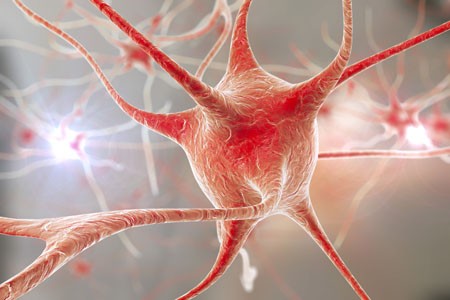Chemicals in E-Cigarettes (Even Nicotine-Free Ones) Cause Cell Damage
E-cigarettes are not regulated to the same extent that cigarettes are by the US Food and Drug Administration, so their contents remain a bit of a mystery. A 2016 study by Vicky Yu and colleagues in Oral Oncology determined that even e-cigarettes without nicotine cause cell damage.
The researchers created an extract from two different brands of e-cigarettes. When they added the extract to human cells in a Petri dish, the cells showed signs of damage (including broken DNA strands) and death compared to untreated cells.
The researchers tested e-cigarettes both with and without nicotine, and those that contained nicotine showed even more signs of cell damage and death after exposure to the contents of the e-cigarette.
Other ingredients that have been identified in e-cigarettes include formaldehyde, which is known to be a carcinogen, and diacetyl, a flavoring agent.
Yu and colleagues suggest that e-cigarettes are not as safe as their marketing would suggest. The researchers hope to identify more of the ingredients in e-cigarettes.
Depression and Resilience Linked to Norepinephrine
Scientists have known for some time that heightened activity of dopaminergic neurons (neurons in the midbrain that contain the neurotransmitter dopamine) can make people vulnerable to depression. New research in animals suggests for the first time that noradrenergic neurons (those that contain the neurotransmitter norepinephrine) control the activity of dopaminergic neurons and that these noradrenergic neurons can make the difference between vulnerability to depression or resilience to stress. The research, published by Elsa Isingrini and colleagues in the journal Nature Neuroscience in 2015, showed that animals that cannot release norepinephrine are vulnerable to depression following chronic stress, but increasing the production of norepinephrine increases the animals’ resilience and reduces depression.
These findings may open up new avenues to treatment that target norepinephrine rather than or in addition to dopamine or serotonin, which is targeted by SSRI antidepressants, or selective serotonin reuptake inhibitors.
More Evidence that Statins Can Reduce Depression in People with Acute Coronary Syndrome
Many studies have linked depression and cardiovascular problems. The solutions may also be linked. A new study found that patients with depression and acute coronary syndrome saw their depression improve most when they took the selective-serotonin reuptake inhibitor (SSRI) antidepressant escitalopram and statins (used to lower cholesterol), while depression improved least among patients who took neither type of drug. Statin use was linked to improvement in depression after one year, while escitalopram was not. In a subset of the study, use of lipophilic statins in particular was linked to improvement in depression.
The study, published in 2015 by S.W. Kim and colleagues in the journal Translational Psychiatry, suggests that statins can improve depression regardless of antidepressant use, but combining statins with an SSRI may have an even more powerful effect on depression.
Statins Reduce Drug-Craving in Mice
 Statins are drugs that are typically used to lower cholesterol. Recent research on the drugs has focused on their effects on the brain.
Statins are drugs that are typically used to lower cholesterol. Recent research on the drugs has focused on their effects on the brain.
In 2015 Claudia Chauvet and colleagues reported in the journal Neuropsychopharmacology that the brain-penetrating statins simvastatin and Atorvastatin reduced cocaine seeking behaviors in mice that were taught to self-administer cocaine and then were denied access to it for 21 days compared to pravastatin, a statin that does not penetrate the brain as thoroughly. The researchers found that the brain-penetrating statins also reduced nicotine seeking, but not food reward seeking. The statins also worked in mice that had stopped seeking cocaine but relapsed due to stress, allowing them to abstain from cocaine seeking again.
Statins are considered a very safe treatment in humans. The ability of statins to prevent relapse to addictions in mice may mean that one day they could be used to treat addictions in people as well. A review article by Cassie Redlich and colleagues in the journal BMC Psychiatry in 2014 indicated that statins may reduce recurrence of depression in people. The researchers found that simvastatin had a protective effect while Atorvastatin was associated with increased risk of depression, so the choice of statins may be important for both depression and addiction.
Guanfacine Improves ADHD Symptoms and Academic and Social Functioning in Children
A study by researcher J.H. Newcorn and colleagues published in the Journal of the American Academy of Child and Adolescent Psychiatry in 2013 found that eight weeks of treatment with the drug guanfacine (extended release) improved symptoms of attention deficit hyperactivity disorder (ADHD) in North American children compared to placebo. A 2015 study by M.A. Stein and colleagues in the journal CNS Drugs extended this research, determining that guanfacine also improved academic and social functioning, including family dynamics, in the same group of children.
Children aged 6–12 who had been diagnosed with ADHD received either placebo or 1 to 4 mg of guanfacine extended release either in the morning or evening. The children in both guanfacine groups showed improvements in family interactions, learning and school, social behavior, and risky behavior compared to those taking placebo. No improvements were seen in life skills or self-concept. The improvements in functioning were linked to the drug’s effectiveness in improving ADHD symptoms. Those children whose ADHD symptoms improved on guanfacine were also more likely to see improvements in academic and social functioning.
Guanfacine Improves Cognition in Schizophrenia
People with disorders on the schizophrenia spectrum often suffer cognition problems that affect skills such as the processing of information about people and social situations (social cognition) and the execution of plans (executive function). At the 2015 meeting of the Society for Biological Psychiatry, researcher Larry J. Siever reported that the drug guanfacine improved these types of thinking in people with disorders on the schizophrenic spectrum compared to placebo. Participants were enrolled in a 7.5-week training program to improve cognition.
Stimulants Linked to Psychotic Symptoms in Offspring of Parents with Psychiatric Illness
Stimulants are one of the most common medications prescribed to children and adolescents, typically for attention deficit hyperactivity disorder (ADHD). In children of parents with major depression, bipolar disorder, or schizophrenia, stimulant use may come with a risk of psychotic symptoms. A 2016 study by L.E. MacKenzie and colleagues in the journal Pediatrics reported that among children and youth whose parents had one of these psychiatric illnesses, 62.5% of those who had taken stimulants had current psychotic symptoms, compared to only 27.4% of those who had not taken stimulants. The participants with psychotic symptoms tended to have hallucinations that occurred while they were taking stimulants. Doctors may want to consider whether parents have a history of psychiatric illness when deciding whether to prescribe stimulants to children and adolescents with ADHD. Activation is a common side effect of antidepressants in children who have a parent with bipolar disorder. Young people taking stimulants for ADHD should be monitored for psychotic symptoms, particularly if they have a parent with a history of depression, bipolar disorder, or schizophrenia.
Over-Pruning of Synapses May Explain Schizophrenia
A gene that plays a role in the pruning of synapses has been linked to schizophrenia. The gene encodes an immune protein called complement component 4 (C4), which may mediate the pruning of synapses, the connections between neurons. Researchers led by Aswin Sekar found that in mice, C4 was responsible for the elimination of synapses. The team linked gene variants that lead to more production of C4A proteins to excessive pruning of synapses during adolescence, the period during which schizophrenia symptoms typically appear. This may explain why the brains of people with schizophrenia have fewer neural connections. The researchers hope that future therapies may target the genetic roots of the illness rather than simply treating its symptoms.
Long-Acting Injectable Aripiprazole Approved for Schizophrenia
 In October, the US Food and Drug Administration (FDA) approved an injectable, long-acting version of the atypical antipsychotic aripiprazole for the treatment of adults with schizophrenia.
In October, the US Food and Drug Administration (FDA) approved an injectable, long-acting version of the atypical antipsychotic aripiprazole for the treatment of adults with schizophrenia.
The long-acting aripiprazole is administered every 4 to 6 weeks as an injection in the arm or buttocks. The company announced that it would begin releasing the drug immediately. The drug preparation for maintenance treatment is named Maintena while the preparation for acute treatment is named Aristada.
Alzheimer’s Treatments May Work for Memory Dysfunction in Depression
In a recent BNN article on potential drugs for memory loss, we omitted two conventional classes of drugs used to treat Alzheimer’s Disease—acetylcholine esterase inhibitors (AChE-Is) and the blocker of glutamate NMDA receptors memantine (Namenda). This was intentional, as we hoped to suggest possible approaches prior to the use of these drugs for full-blown dementia. However, we neglected to cite a 1999 study by Fred Jacobsen in the Journal of Clinical Psychiatry that indicated that the AChE-I drug donepezil (Aricept) was effective in improving drug-induced memory dysfunction in patients without dementia. Side effects included insomnia, nausea, vomiting, and diarrhea.
Jacobsen has used AChE-Is to improve memory in over 80 patients with unipolar or bipolar depression, aged 19-85. In a 2016 personal communication to the BNN, he indicated that doses of 5mg/day are typically enough to improve memory. Higher doses of 10mg/day may be more effective, but increase the risk of switching into mania for patients with bipolar depression. Some of Jacobsen’s patients have used AChE-I drugs for 10–15 years without the drugs losing effectiveness. For some patients, Jacobsen has switched from prescribing donezepil to prescribing rivastigmine (Exelon or Exelon patch), which he finds they can more easily tolerate.
We should also remind readers of the BNN of our previous report on memantine (Namenda) for bipolar depressed patients with cognitive impairment. We wrote, “In an abstract presented at the 67th Annual Meeting of the Society of Biological Psychiatry in 2012, Dan V. Iosifescu reported that in a randomized 12-week study in which the anti-Alzheimer’s drug memantine was given to 72 euthymic bipolar subjects experiencing cognitive deficits, the drug was associated with improvement in spatial and working memory, verbal and episodic memory, and other indices that included measurements of attention and language skills. In conjunction with this treatment, a subgroup of subjects had increases in left hippocampal NAA (a measure of neuronal viability) and increases in choline in the right hippocampus. The initial improvements in these neuropsychological test results remained over 12 weeks of open follow-up.”
In an earlier proof-of-concept study published in the journal CNS Neuroscience and Therapeutics in 2009, Iosifescu had also reported that among nineteen subjects with bipolar disorder that was in remission, but who had residual cognitive deficits, open-label treatment with the AChE-I galantamine (extended release) at doses of 8–24 mg/day led to improvement in those cognitive symptoms after 4 months.









